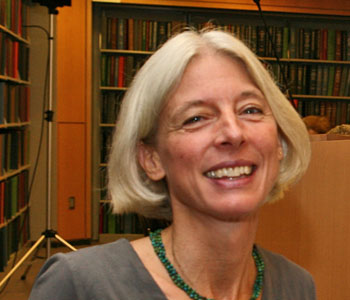David William Bates
States of War: Enlightenment Origins of the Political
Columbia University Press
280 pages, 6 x 9 inches
ISBN 978 0231158053
States of War examines an age-old conflict within constitutional legal states—to what extent can political authorities violate the law in times of crisis, emergency, or war?
This question has haunted modern states since their founding in the revolutionary era. Since 9/11, we have had to face this question repeatedly as state powers try to balance the demand for security, protection, and order with the foundational principles of constitutional rule, namely the priority of law and the rights of citizens.
My book challenges the dominant way of addressing the question.
Normally, we separate two different principles when dealing with the problem of emergency and war. We accept that there are legal principles meant to limit and constrain authority, but we also accept that one of the main functions of political authority is to defend the integrity of the political community. In other words, we admit that there are two separate logics at work within the modern state, one that is purely political, justified by an existential imperative of survival, and the other legal, legitimated by basic ideals concerning the rights of citizens. Recent debates over executive power in the US show clearly this division, as some argue for the relative independence of this authority from legal and constitutional restriction while others insist on the absolute sacred quality of individual rights and international law.
My argument is that the division between the political logic of sovereign authority and the legal logic of constitutional rule is artificial.
I show, through a reading of the most important constitutional theorists of the Enlightenment, that at the origin of the modern state, the ideas of sovereignty, law, and right were all deeply intertwined.
True, the logic of sovereignty was inherited from the absolutist states of the early modern period, and yes, the modern constitutional theories first developed in the Enlightenment were aimed at constraining arbitrary authority. However, we have misunderstood these influential eighteenth-century thinkers by emphasizing their concepts of legal constitutional structures (such as the division of powers).
States of War zeroes in on the origin of political community to see what role violence, war, and enmity play in the formation of a legal state. The surprising conclusion is that the most radical concept of political order, one rooted in a basic existential will to survive, turns out to be the foundation for the most radical democratic political order possible.
Although I was trained as a historian I have always been interested in thinking about how contemporary problems animate historical work, and how historical understanding might address our own world.
This is not an easy task, since paying attention to the historical moment and its specificity usually entails a certain distancing from (and defamiliarization of) the historical texts. At the same time, there is no question that we are still living with the remains of the past and a deeper historical understanding of those origins can give us a new perspective on our own world.
The Enlightenment is such an interesting period to study precisely because it was the incubator of so many ideas and even institutions that form the foundations of modern life. Whether we celebrate or criticize that legacy, it cannot be ignored.
In this book I argue that our political concepts and our basic constitutional beliefs have their origin in the Enlightenment. The American constitution, for example, is an Enlightenment document.
Normally, we think of the Enlightenment as emphasizing individual rights and popular sovereignty. The Enlightenment philosophers developed the idea of legitimate authority using fictional (“conjectural”) histories of the formation of political communities.
I reexamine these stories of political origin to show that the beginnings of such community were more fraught than they first appear. I look at the canon of modern political theory, beginning with the natural law theorists Grotius, Hobbes, and Pufendorf, before analyzing the key works of Locke, Montesquieu, and Rousseau. Through a close reading of the texts, I show how important existential ideas of survival and protection were for these thinkers as they tracked the theoretical origins of the state. At the same time, I demonstrate how legal (and particularly constitutional) ideas were in fact derived from that existential approach.
Therefore, through a careful, historically sensitive reading of the Enlightenment texts, I aim to show that it was possible to imagine a legal community from within the “political” logic of existential conflict. Indeed, with the final chapter on Rousseau, I suggest that it was precisely because the political logic of survival involved every citizen equally, with no differences between them (survival is “all or nothing”), that a democratic legal-political order, defined by equality and liberty, was even possible.
With this interpretation of Enlightenment, I am offering both a new way of thinking about the historical role of these important authors, and a new way of thinking about the theoretical problem of law and political authority itself. The book is therefore both a contribution to intellectual history and an attempt to intervene in debates concerning emergency power and related issues in the twenty-first century.
I think that the reader interested in the pressing contemporary problem of emergency power and its excesses would find the introductory chapter most interesting. There I identify the longer history of the problem and introduce the main conceptual difficulties surrounding the nature of the “political” as an autonomous sphere. For example, I discuss the influential (if controversial) German thinker Carl Schmitt and his ideas about the political as a life-or-death decision about the “enemy.” My use of the term “concept of the political” comes from Schmitt, however I am arguing that Enlightenment thinkers were the first to isolate the autonomous, existential nature of the political sphere. I also sketch out the importance of the Enlightenment for understanding the tensions between legal notions of the state and sovereign conceptions—for it was in the eighteenth century that this conflict first appeared with the first modern notions of constitutional definitions of state authority.
However, I expect that many readers will gravitate to one or more of the individual chapters, depending on their own interests. For example, for those intrigued by the constitutional ideas of Montesquieu, I give a rather iconoclastic reading of his famous depiction of the English constitution, so often taken (even by the founders) as a celebration of the ideal “separation of powers.” For those interested in Locke’s defense of individual rights and property, the chapter on his work will hopefully raise some new questions about the importance of war and enmity that have been overlooked. I focus not only on his theory of prerogative (a kind of emergency power) but also Locke’s analysis of early tribal leadership and his precise definitions of the nature of war. The chapter on Rousseau offers an original take on this author, first by looking at his political theory from the perspective of war and violence, and then by framing his discussion of the political body at war with the crucial metaphors of the nervous system, metaphors that resonate with later ideas of cybernetics.
The book argues that it is the very specificity of a defined political community defending itself in a world of war and violence that alone can sustain rights—and therefore, it is the existential, militarized state that paradoxically guarantees the very possibility of equality, the rule of law, and political freedom. However, this is only possible if we recognize that only authentic political decisions about survival are legitimate ones.
One implication of my argument concerns the way we think about rights today, and especially human rights. Many critical theorists claim that sovereignty and political authority is necessarily exclusionary and therefore anti-democratic. The so-called universal rights of man and citizen (to cite the declaration of the French Revolution) are only given (and protected) within bounded territorial states. Other critics point out that these seemingly universal rights are actually very historically and culturally specific—namely, European and liberal. So what is the nature of a universal “human” right?
I am suggesting that we think about human rights as inherently political. The key argument of the Enlightenment was that rights are derived from a political community that seeks to defend all citizens equally, with no exception. However, there was nothing within that theorization that implied that the only true political community was the nation-state formation prevalent at the time. By thinking of the political as a concept (defining, that is, a certain form of being and activity) we could, I think, begin to think about larger political units, transnational spaces, as defending populations against certain kinds of violence and oppression. This is an open question, and a controversial one. Still, I think that is best to acknowledge the specific kinds of rights we are willing to defend in our historical moment than to assume these are truly “universal” and transhistorical. Otherwise, we risk dehumanizing those that think differently about human order.
Since human rights regimes already depend on military and political support for their implementation, it is important to acknowledge the deeper connections between violence, warfare, and the foundations of rights, if we are to be successful in establishing meaningful protection.
.jpg)



We don't put paywalls. We don't distract you with ads. We don't sell your data.
Please help to keep this running!